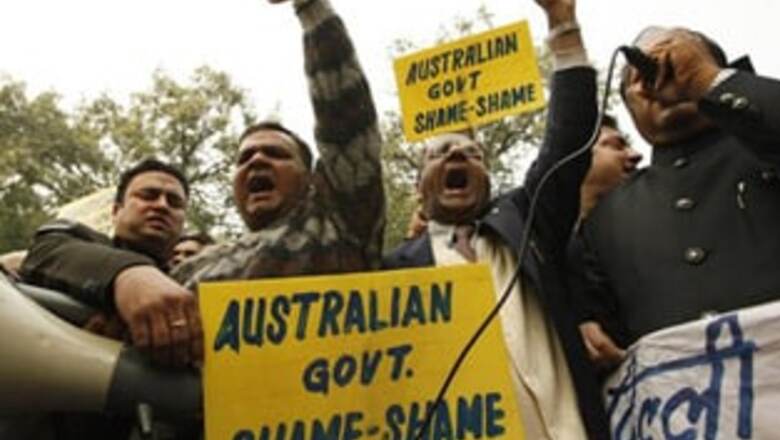
views
Melbourne: Two years ago, Australia's state and federal governments were warned about the possibility of foreign students facing attacks, but they "weren't interested in listening", a group that represents the country's universities said Saturday.
Universities Australia chief executive Glenn Withers told The Age he was disappointed state and federal governments did not treat the problem as a priority when they were told two years ago but acted with urgency only when violent attacks on Indian students attracted intense media attention.
"We were disappointed that earlier warnings took the unfortunate development of street assaults to lead to the reforms that should have been in place already. We saw this two years ago as an issue, tried to transmit it to government and were meeting resistance," he was quoted as saying.
Withers said they wanted to work with the Coalition of Australian Governments to tackle problems in the vocational training sector that were likely to adversely impact the higher education sector but were not taken seriously.
"We were told basically, 'This is not a matter for you, you are a concern of the Commonwealth and have no place at our table'.
"We were warning: 'Look it's a reputational issue, it's a brand Australia issue, please let us work with you'. The states weren't interested in listening. I think they thought they could just ride this industry to their benefit without worrying about their role in any serious way."
There has been a string of attacks on Indian students in Australia since May last year. Indian students have been set upon and viciously assaulted, causing an outcry in India.
Two attacks on Indians proved fatal. While Ranjodh Singh's partially burnt body was found in New South Wales on December 29, another Indian Nitin Garg was stabbed to death in Melbourne while he was on his way to work on January 2.
The assaults threaten to strain relations between New Delhi and Canberra.
Withers said they also expressed concern over the link between international education and immigration.
The federal government was so "enamoured of short-term labour market convenience (to) employers that it did not listen when we said immigration should be part of long-term national development", he said.
"Permanent migration should not have been skewed for those purposes. They realised that and began to repair it, but too late," he said.
The claim comes amid new figures showing a sharp fall in overseas students, particularly Indians, applying to study in Australia.
Applications from India fell 46 percent and those from Nepal fell by a staggering 85 percent.
At La Trobe University new applications from Indian students for the first semester this year were half of last year's.




















Comments
0 comment